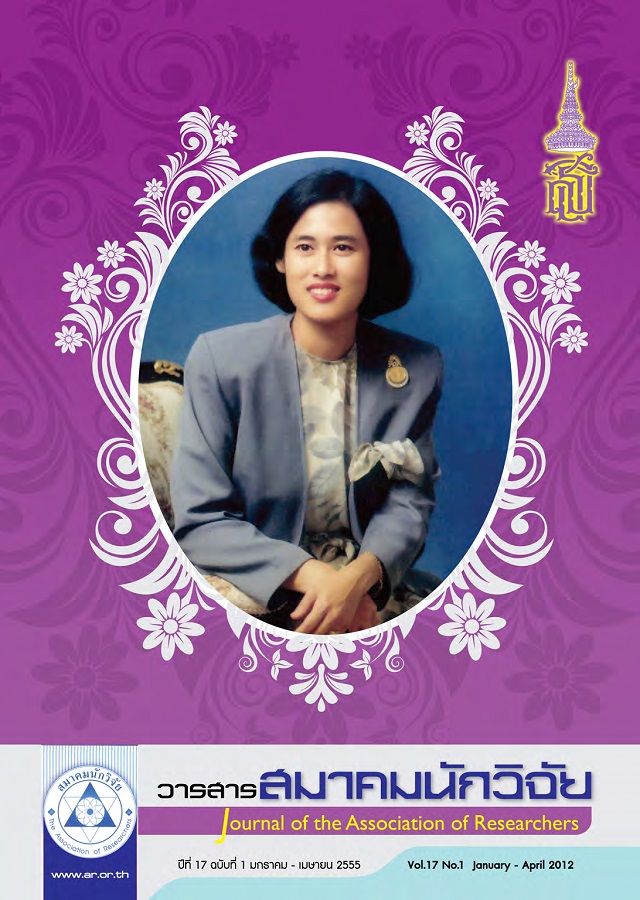THE KNOwLEDGE TRAINING MODEL wITH THE DUAL fIRMAMENT APPROACHES Of THE PERSONNEL TRAINING ORGANIzATIONS IN THE NORTHEASTERN PART Of THAILAND
Main Article Content
Abstract
The objectives of this study were to study, analyze, and present the structural equation model for managing the knowledge training with the Dual Firmament approach of the Personnel Training Organizations in Northeastern Part of Thailand. Data from a set of 384 questionnaires ( selecting by multi-stage random sampling) were used in this study. All statistics were applied: frequency, percentage, means, standard deviation, one sample t-test, confirmatory factor analysis, and path analysis. Research results were as follows: 1) Most of antecedent variables, averages were at the high level and significant at the .05 level; 2) As a whole, the following confirmatory components were as crucial components, with the criteria, on selected factors of the structural equation model a) A set of Personnel factor as position, agency, and educational level; b) A set of Psychological factor as attitudes on working, thinking styles, and experience of trainees; c) A set of Managerial administration factor as media/equipment for training, training programs, and timing for training; d) A set of Training Success with the Social Constructivism or SC approach as cooperative learning, and reaction between trainees and society; and 2.5) A set of Training Success with the Radical Constructivism or RC approach as knowledge building with him/her-self, and believed in knowledge as real experiences; and 3) As a result of analyzing the structural equation model, it revealed that as a whole, the success of all officers with the SC approach a) got direct influences from the 2 factors, namely managerial administration at moderate level (Direct Effect = 0.53) and personality at the low level (Direct Effect = 0.12); and b) got the indirect influences from the psychological factor at the low level (Indirect Effect = 0.33) by passing the managerial administration. Those factors could predict the training success with the SC approach at 38.10 percent and significant at the .05 level. In addition, the success with the RC approach a) got the direct influence from only one factor as managerial administration at the moderate level (Direct Effect = 0.60); and b) got the indirect influence from the psychological factor at the low level
(Indirect Effect = 0.38) by passing the managerial administration factor. Those factors could predict the training success with the RC approach at 36.40 percent and significant at the .05 level.
Article Details
บทความที่ปรากฏในวารสารนี้ เป็นความรับผิดชอบของผู้เขียน ซึ่งสมาคมนักวิจัยไม่จำเป็นต้องเห็นด้วยเสมอไป การนำเสนอผลงานวิจัยและบทความในวารสารนี้ไปเผยแพร่สามารถกระทำได้ โดยระบุแหล่งอ้างอิงจาก "วารสารสมาคมนักวิจัย"


